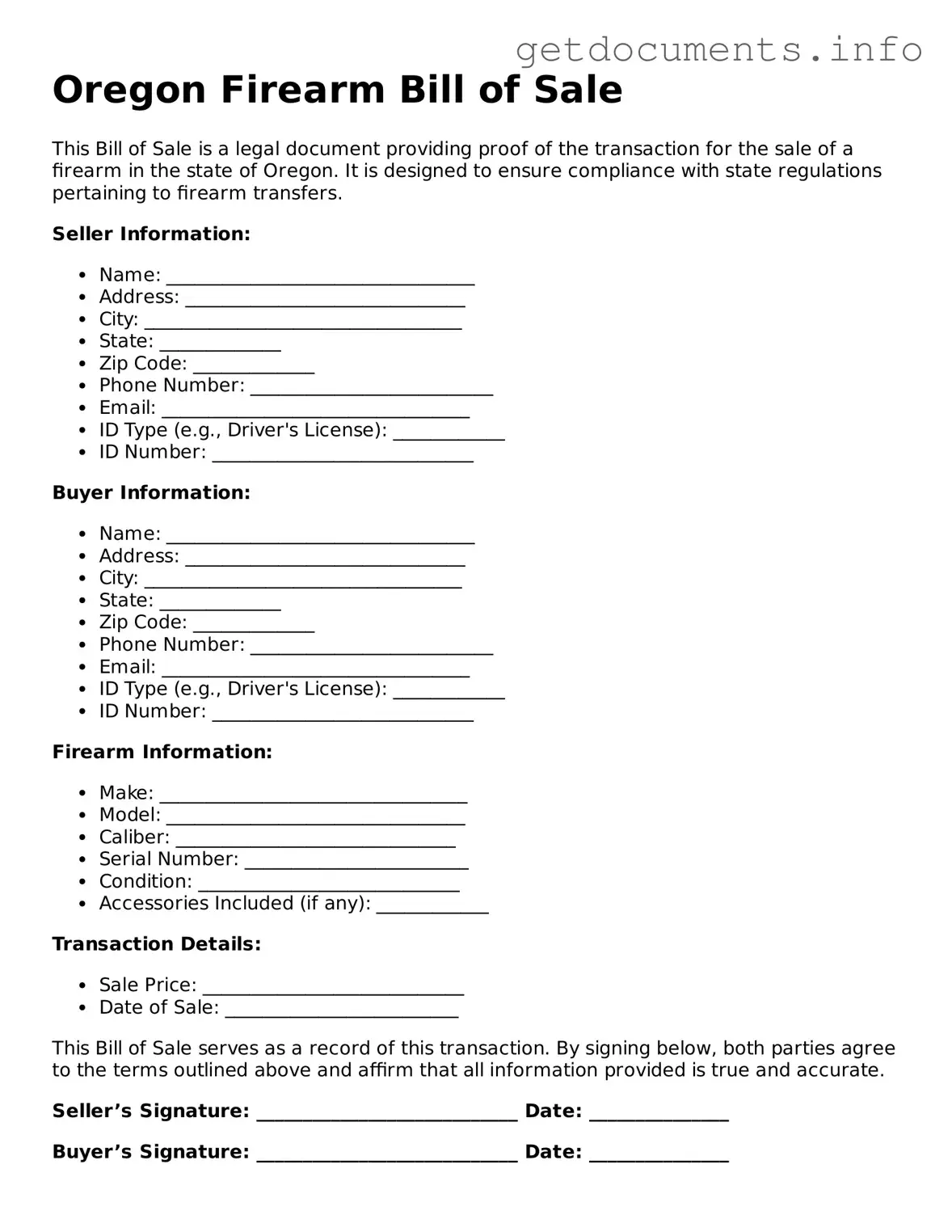Free Firearm Bill of Sale Template for Oregon
The Oregon Firearm Bill of Sale form is a crucial document that records the transfer of ownership for firearms between individuals in the state of Oregon. This form serves not only as proof of purchase but also helps ensure compliance with state laws governing firearm transactions. If you're looking to buy or sell a firearm in Oregon, make sure to fill out this essential form by clicking the button below.
Access Firearm Bill of Sale Editor

Free Firearm Bill of Sale Template for Oregon
Access Firearm Bill of Sale Editor
Got places to be? Complete the form fast
Fill out Firearm Bill of Sale online and avoid printing or scanning.
Access Firearm Bill of Sale Editor
or
⇩ PDF File
